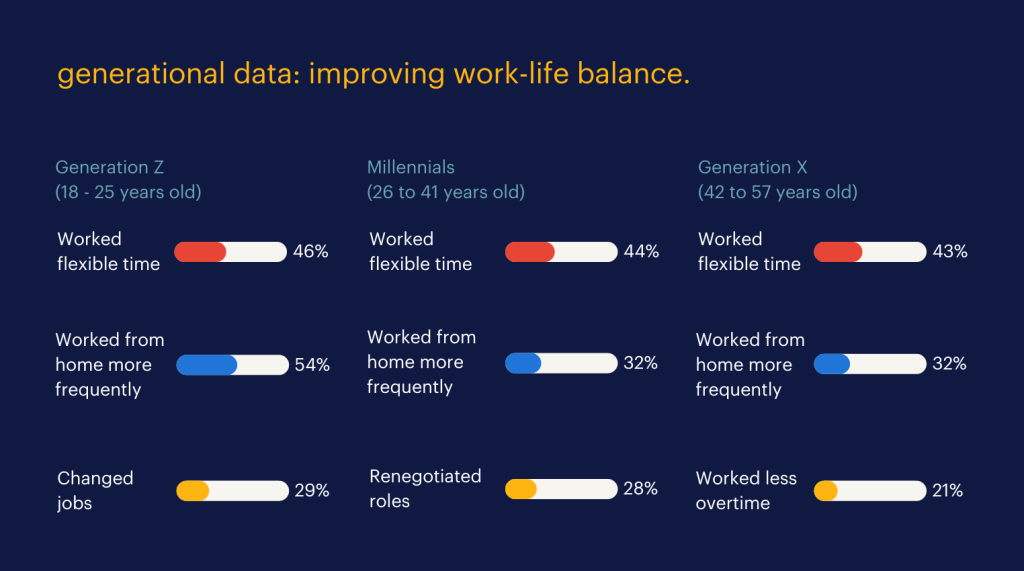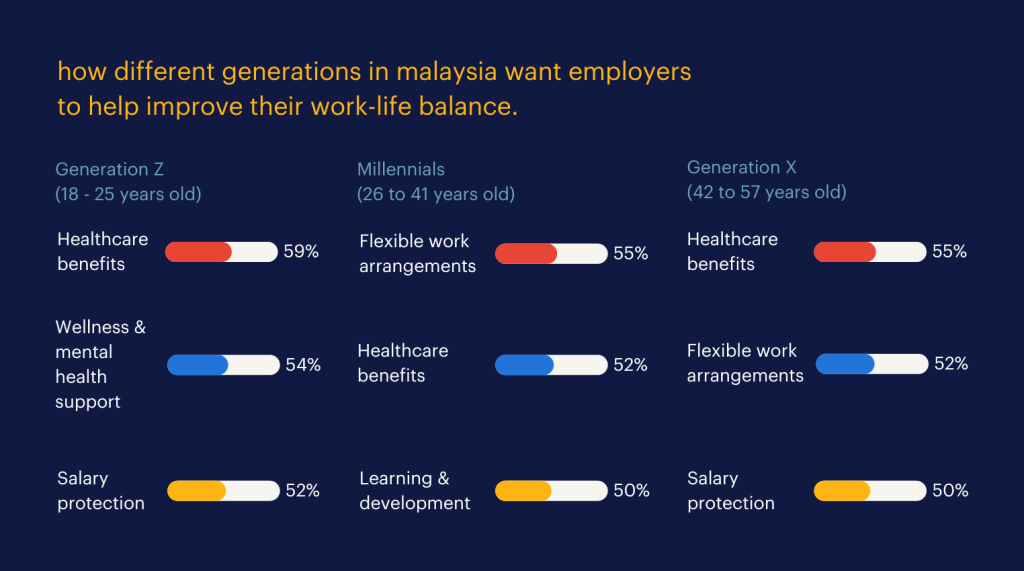New results from Randstad Malaysia’s 2022 Employer Brand Research revealed that 29 per cent of Generation Z respondents aged between 18 and 25 years old changed jobs to improve their work-life balance.
In comparison, 21 per cent of Generation X workers (45 to 57 years old) said that they worked fewer overtime hours to improve their work-life balance.
The Employer Brand Research Generation Report in Malaysia was commissioned by Randstad and independently conducted by Kantar TNS, the Randstad Employer Brand Research explores the talent expectations across the different working generations.
Fahad Naeem, country director at Randstad Malaysia said, “It shouldn’t come as a surprise that employees want more work flexibility after the pandemic. They want to gain better control over how they get to spend their time at work and in their personal lives. Employers that expect their workers to return to the office full-time may face some resistance from their workforce, which may lead to higher attrition rates as people go on to search for companies that offer flexible work.”
“Being at the early stages of their careers, Gen Zers are more likely to take the risk to switch to employers that can meet their expectations. On the other hand, Millennials are likely to negotiate their roles and responsibilities so that they can continue working for the same company, indicating that they prioritize having job stability. Some of these negotiations may include job rotation, career promotion or a reduction of workload.”
Unlike Gen-Zers and Generation X workers who wished for their employers to offer healthcare benefits to improve their work-life balance, millennials would rather have flexible working options.
More than half of the Gen-Zers (54 per cent) said that they want their employers to provide wellness and mental health support.
























